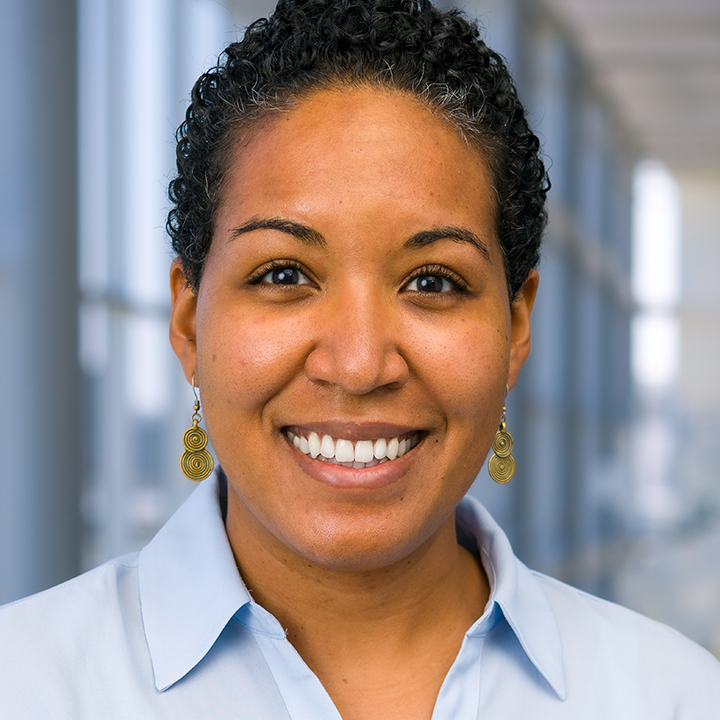Tamia Harris-Tryon, M.D., Ph.D.
- Assistant Professor, Dermatology | Immunology
- Disease-Oriented Clinical Scholars (DOCS) Program
- Harold Amos Scholar
- Robert Wood Johnson Foundation
- Burroughs Wellcome Fund Career Award for Medical Scientists

“If you have a question and no one has the answer, then you have a project.”
Early Influences
Dr. Harris-Tryon was introduced to the world of health care at a young age.
“My parents are physicians, and my grandmother was a midwife. I grew up surrounded by the concept of helping others with their health, and knew from an early age that I wanted to spend my life caring for others.”
Specifically, her interest in the research aspects of health care was sparked by the National Institute of Medicine (NIH) Minority Access to Research Careers (MARC) program at Temple University, led by Moses Williams, Ph.D. This pipeline program was “dedicated to fostering the development of talented minority students in science and medicine. The program exposed me to research in academia, industry, and at the National Institutes of Health.”
Dr. Harris-Tryon credits the program with helping her overcome the many “barriers throughout my experience in science.” She says, “The MARC program gave me the additional skills and network needed to overcome these early challenges. It provided me with training opportunities that minority students rarely have access to.”
Contributions to STEMM
As a physician-scientist, Dr. Harris-Tryon said, “my research bridges the fields of immunology, microbiology, and metabolism, and focuses on the interface between the skin surface and the community of microbes that colonize this niche.” In the Harris-Tryon lab, she studies the skin “microbiota,” a term coined to describe the microorganisms that dwell upon the skin. “Our broad research goals are to decipher mechanisms that the skin uses to protect the host from bacterial infection, and develop novel therapeutic targets for inflammatory skin conditions,” she said.
The UT Southwestern Difference
“I absolutely love my job. The intellectual stimulation is endless. I care for my patients using the available therapies, and I lead a lab aimed at developing new therapies. In both arenas, I train physicians and scientists and play a part in mentoring the next generation.”
Overcoming Challenges
“The most challenging barrier for me since becoming a physician-scientist is the lowered expectations and decreased opportunities after I had children. There seemed to be an expectation that I would be less interested in pursuing my longstanding career goals in science, medicine, and academic leadership,” said Dr. Harris-Tryon. “I had to find new avenues of support and mentorship. I also had to spend energy proving, again, that I ‘belonged’ in science and medicine.”
She is a mentor for the UT Southwestern Medical School’s Gotcha Covered Mentorship Program. She strongly believes that “girls and underrepresented minorities need greater exposure to scientific thinking and greater access to training opportunities in STEMM.”
View Academic Profile